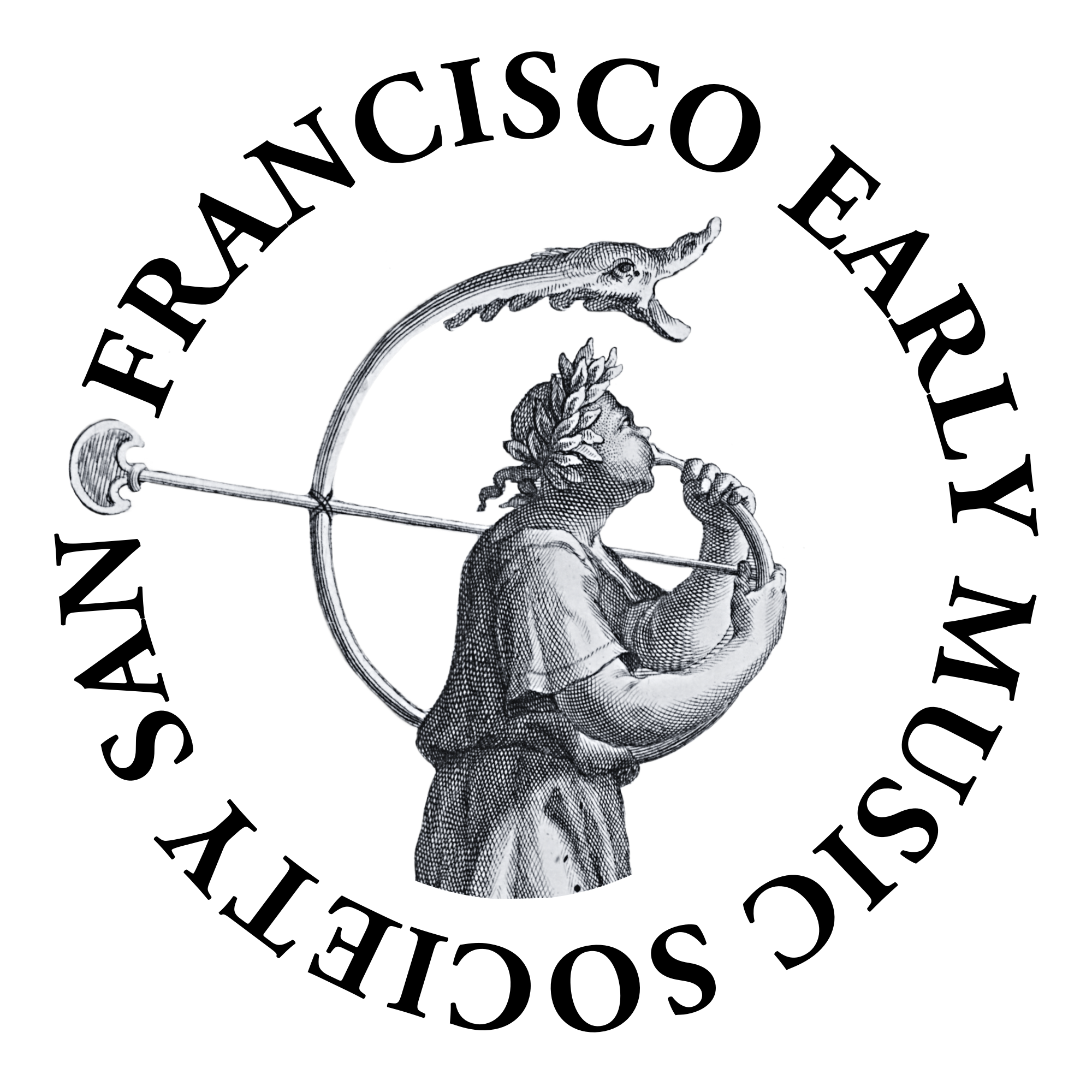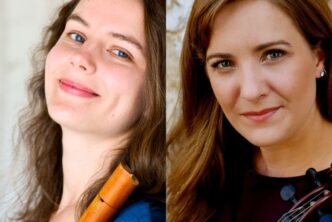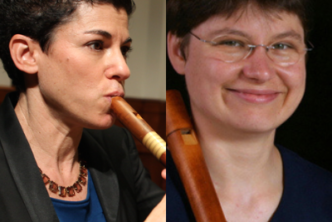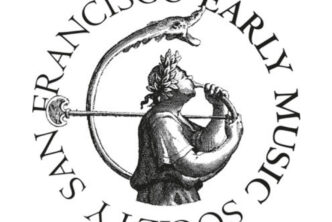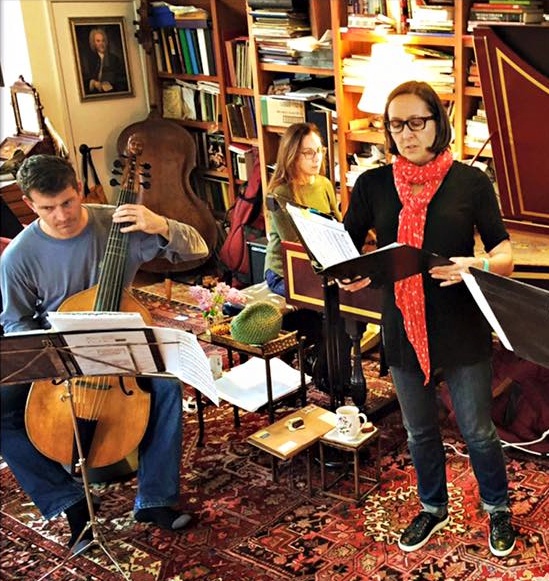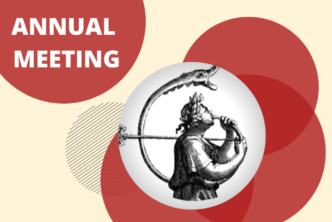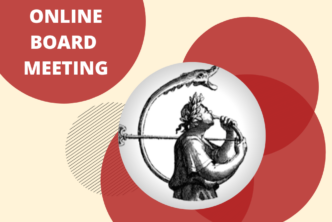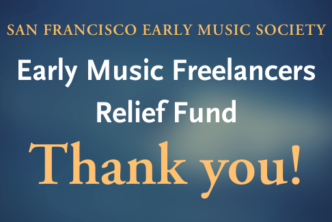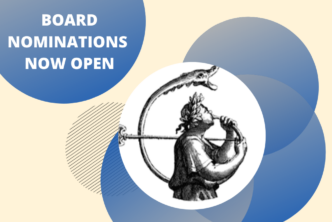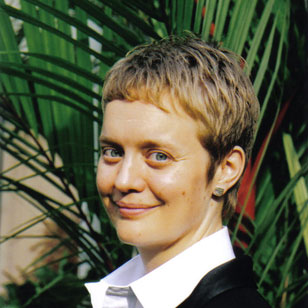SFEMS 43rd Concert Season Preview
The poet Ezra Pound once said something to the effect that the poem fails when it strays too far from the song, and the song fails when it strays too far from the dance. One well may believe these arts, to which of course we must add music—all of them performative, prosodic, and kinesthetic—spring from a common source. Dance lies deep within our nature. Animals dance, both instinctively, as in mating rituals, and some even spontaneously in response to human music. Human infants dance before they can walk. Dance is a cultural universal. We follow the rhythms of life, the pulse of blood and breath.
Our music is intimately linked to the interplay of sound and movement. This is especially true of early music, in its many varieties and forms—from the infectious pulse of Irish or Andalusian folk dance, closely related to the Cantigas of the Middle Ages; to the expansive pavans of the Renaissance transformed into some of the era’s greatest works; to the stylized and highly elaborated dances of the baroque suite and the florid arias whose rhythms they drive; to the minuets of Mozart and Haydn. This season, SFEMS celebrates the joy, the power, and the passions of the dance.
The series is pushed forward slightly this year, and ends a bit earlier than this past season, in anticipation of the upcoming, 2020 Berkeley Festival and Exhibition, the first week in June. Note that we have returned to St. John’s Presbyterian Church for most of our Berkeley concerts, and we have re-located our San Francisco performances (with one exception) to the Church of the Advent.
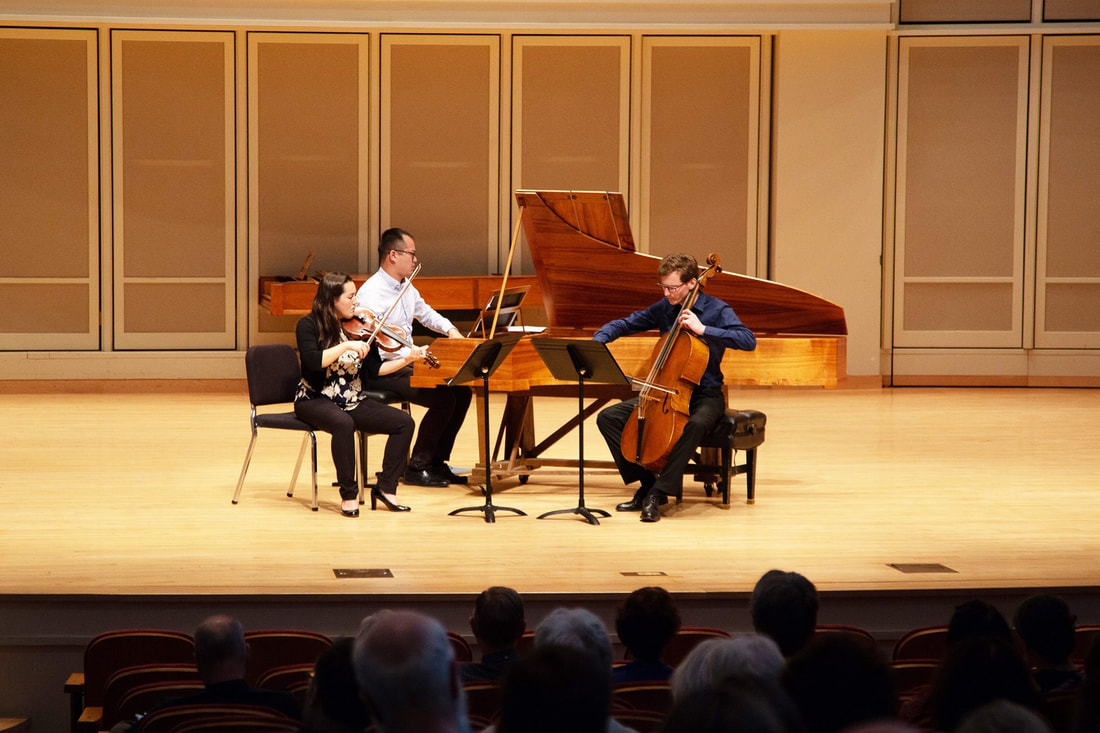 The 2019–20 concert season opens the weekend of September 20–22, 2019, with “The Harmonious Four,” which is actually a trio, specifically the Costanoan Trio—Cynthia Black, violin; Frédéric Rosselet, cello; and Derek Tam, fortepiano. Early Music America has called this group, who will be making their debut on the SFEMS series with these performances, “the best of emerging early music talent.” The Trio explores the piano trio repertoire of the late 18th and early 19th centuries on period instruments and attempts to recreate the world of domestic music-making in intimate concert spaces. Their program features trios by the four great composer-pianists of the late 18th century—Haydn, Mozart, Clementi, and Beethoven.
The 2019–20 concert season opens the weekend of September 20–22, 2019, with “The Harmonious Four,” which is actually a trio, specifically the Costanoan Trio—Cynthia Black, violin; Frédéric Rosselet, cello; and Derek Tam, fortepiano. Early Music America has called this group, who will be making their debut on the SFEMS series with these performances, “the best of emerging early music talent.” The Trio explores the piano trio repertoire of the late 18th and early 19th centuries on period instruments and attempts to recreate the world of domestic music-making in intimate concert spaces. Their program features trios by the four great composer-pianists of the late 18th century—Haydn, Mozart, Clementi, and Beethoven.
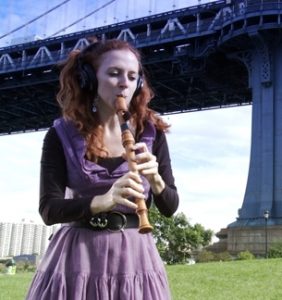 The weekend of November 22–24, SFEMS welcomes a pair of ensembles for a co-presentation of medieval and Sephardic music and song. While the ensembles themselves are new to the series, many of their members are familiar to our audiences. Aquila (Phoebe Rosquist and Michele Kennedy, voice; Peter Maund, percussion; Gary Haggerty, oud, saz & percussion; and Shira Kammen, vielle, rebec, medieval harp & voice) joins with Tres Hermanicas (Nell Snaidas, voice & early guitars; Shira Kammen, vielle, rebec, medieval harp & voice; and Daphna Mor, voice, ney & recorders) for “Roses & Almonds,” a concert celebrating life, love, food & drink, nature, spirituality, adventure & humor. In Christian and Sephardic cultures, both the rose and the almond are powerful symbols. The rose, with its beauty and sensual fragrance evokes love, fragility and the Virgin Mary, where the almond symbolizes renewal, hope, perseverance and virginity. There is a myth in Judaism that links the bottom of the almond to the entrance to the underworld. Ensembles Aquila and Tres Hermanicas will celebrate the sacred and secular delights of both cultures through storytelling, dance and song.
The weekend of November 22–24, SFEMS welcomes a pair of ensembles for a co-presentation of medieval and Sephardic music and song. While the ensembles themselves are new to the series, many of their members are familiar to our audiences. Aquila (Phoebe Rosquist and Michele Kennedy, voice; Peter Maund, percussion; Gary Haggerty, oud, saz & percussion; and Shira Kammen, vielle, rebec, medieval harp & voice) joins with Tres Hermanicas (Nell Snaidas, voice & early guitars; Shira Kammen, vielle, rebec, medieval harp & voice; and Daphna Mor, voice, ney & recorders) for “Roses & Almonds,” a concert celebrating life, love, food & drink, nature, spirituality, adventure & humor. In Christian and Sephardic cultures, both the rose and the almond are powerful symbols. The rose, with its beauty and sensual fragrance evokes love, fragility and the Virgin Mary, where the almond symbolizes renewal, hope, perseverance and virginity. There is a myth in Judaism that links the bottom of the almond to the entrance to the underworld. Ensembles Aquila and Tres Hermanicas will celebrate the sacred and secular delights of both cultures through storytelling, dance and song.
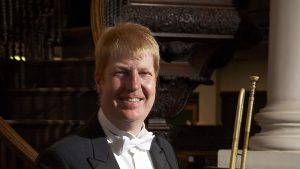 December brings a very special treat—“Rejoice,” a one-time-only appearance by England’s legendary orchestra, The Academy of Ancient Music, directed by Bojan Čičić. The concert will feature Rowan Pierce, soprano; David Blackadder, trumpet; and Čičić himself on violin. Rejoice greatly in an evening of music to stir the soul and lift the spirits. Celebrate with some of the baroque’s musical masters—Bach, Handel, Corelli, Purcell, and more—heard here at their most irrepressibly joyful and effervescent. The orchestra is joined by rising young soprano Rowan Pierce and trumpeter David Blackadder, the instrument’s finest living champion. This is a concert that promises to send you home with a smile on your face and a spring in your step. This special event, not part of the regular series, will take place the evening of December 13, at Berkeley’s First Congregational Church.
December brings a very special treat—“Rejoice,” a one-time-only appearance by England’s legendary orchestra, The Academy of Ancient Music, directed by Bojan Čičić. The concert will feature Rowan Pierce, soprano; David Blackadder, trumpet; and Čičić himself on violin. Rejoice greatly in an evening of music to stir the soul and lift the spirits. Celebrate with some of the baroque’s musical masters—Bach, Handel, Corelli, Purcell, and more—heard here at their most irrepressibly joyful and effervescent. The orchestra is joined by rising young soprano Rowan Pierce and trumpeter David Blackadder, the instrument’s finest living champion. This is a concert that promises to send you home with a smile on your face and a spring in your step. This special event, not part of the regular series, will take place the evening of December 13, at Berkeley’s First Congregational Church.
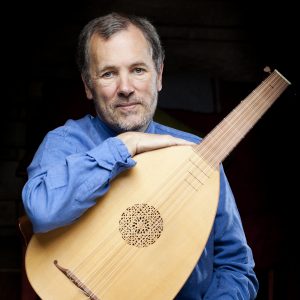 The series resumes in the new year, the weekend of January 10–12, 2020, with an appearance by the acclaimed Canadian viol consort Les Voix Humaines (Mélisande Corriveau, Margaret Little, Felix Deak, Marie-Laurence Primeau and Susie Napper); with guest artist Nigel North, lute. Their program, “Lachrimae,” explores various settings of this most canonic of Elizabethan works. Dowland’s Lachrimae has indeed become canon in the annals of consort music. “Unfit guests in these joyful times,” these seven tears of extreme beauty are cried out by five viols and lute, Dowland’s instrument. This performance is significantly different from most in that the music is ornamented in a style appropriate to the period and in defiance of a certain modern Puritanism that demands total adherence to the written page. The embellishment adds expressive elegance and musical freedom that we hope enhances the audience’s “joy and gladness!”
The series resumes in the new year, the weekend of January 10–12, 2020, with an appearance by the acclaimed Canadian viol consort Les Voix Humaines (Mélisande Corriveau, Margaret Little, Felix Deak, Marie-Laurence Primeau and Susie Napper); with guest artist Nigel North, lute. Their program, “Lachrimae,” explores various settings of this most canonic of Elizabethan works. Dowland’s Lachrimae has indeed become canon in the annals of consort music. “Unfit guests in these joyful times,” these seven tears of extreme beauty are cried out by five viols and lute, Dowland’s instrument. This performance is significantly different from most in that the music is ornamented in a style appropriate to the period and in defiance of a certain modern Puritanism that demands total adherence to the written page. The embellishment adds expressive elegance and musical freedom that we hope enhances the audience’s “joy and gladness!”
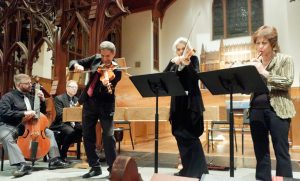 Musica Pacifica returns to the stage to brighten the dark days of February with “Airs of Caledonia,” a sequel to their popular “Dancing in the Isles” program, featured on our series some years back. Judith Linsenberg, recorders; Ingrid Matthews and David Greenberg, violin; William Skeen, cello; and Charles Sherman, harpsichord, in effect have concocted a “Dancing in the Isles II,” a new, original program of music from the British Isles, featuring soulful airs and merry jigs, alongside the more studied compositions by Purcell, Locke, Corelli, and Muffat; and some music by Scottish composers that defies classification as either classical music or folk. Pieces from the The Division Violin and The Division Flute will be performed, as well as new sets of English country dance music and English court masque music. The concerts take place February 14–16, 2020
Musica Pacifica returns to the stage to brighten the dark days of February with “Airs of Caledonia,” a sequel to their popular “Dancing in the Isles” program, featured on our series some years back. Judith Linsenberg, recorders; Ingrid Matthews and David Greenberg, violin; William Skeen, cello; and Charles Sherman, harpsichord, in effect have concocted a “Dancing in the Isles II,” a new, original program of music from the British Isles, featuring soulful airs and merry jigs, alongside the more studied compositions by Purcell, Locke, Corelli, and Muffat; and some music by Scottish composers that defies classification as either classical music or folk. Pieces from the The Division Violin and The Division Flute will be performed, as well as new sets of English country dance music and English court masque music. The concerts take place February 14–16, 2020
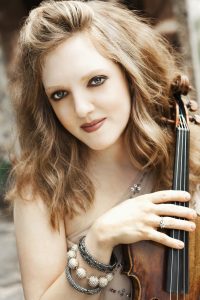 The season concludes the weekend of March 20–22, 2020, with a joint appearance by Rachel Barton Pine, violin, and Jory Vinikour, harpsichord, who will perform music of Johann Sebastian Bach. Two of the finest exponents of their instruments will interpret some of the baroque era’s greatest chamber music. Following the critically acclaimed release of their 2018 album of Johann Sebastian Bach’s sonatas for violin and harpsichord, Barton Pine and Vinikour team up again to present several of the sonatas on that album, as well as solo partitas written for their respective instruments.
The season concludes the weekend of March 20–22, 2020, with a joint appearance by Rachel Barton Pine, violin, and Jory Vinikour, harpsichord, who will perform music of Johann Sebastian Bach. Two of the finest exponents of their instruments will interpret some of the baroque era’s greatest chamber music. Following the critically acclaimed release of their 2018 album of Johann Sebastian Bach’s sonatas for violin and harpsichord, Barton Pine and Vinikour team up again to present several of the sonatas on that album, as well as solo partitas written for their respective instruments.
Season subscriptions are currently available online for our returning subscribers. Orders are now being taken by visiting the SFEMS Subscription page, or by printing and mailing the season subscription order form.
Returning SFEMS subscribers are currently able to book their usual seats ahead of the season brochure mailing, and new subscribers will get priority seating before individual tickets go on sale to the general public on June 24th.
You may also add the “Special Event” to your subscription package.
SFEMS series subscribers will receive a special subscriber discount on all “Special Event” tickets. Members will receive a discount of 25%, and non-members will receive a discount of 15% off the list price.
Please feel free to call the box office at 510-528-1725, or email tickets@sfems.org.

